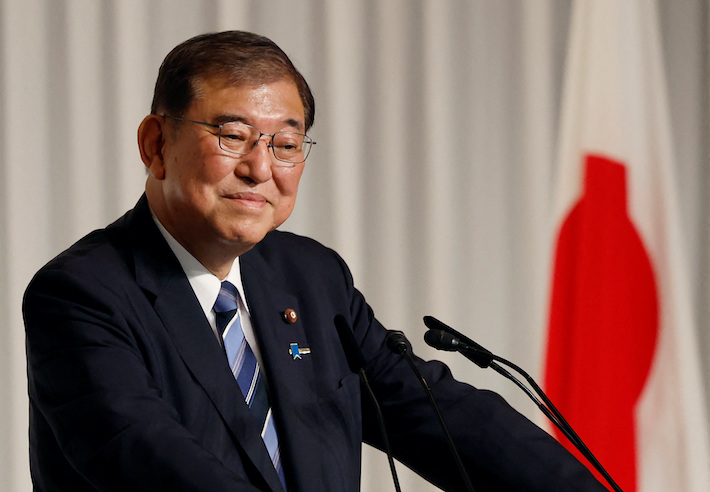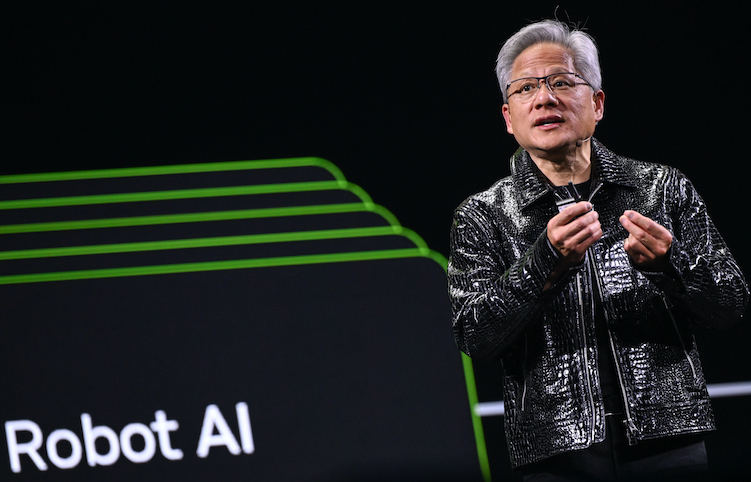Political uncertainty hovers like a cloud over Japan’s fragile economy, with analysts saying policy paralysis could hinder the drafting of next year’s budget and the timing of the central bank’s next interest rate hike.
There have been increased calls in the ruling Liberal Democratic Party (LDP) for Prime Minister Shigeru Ishiba to step down – and take responsibility – for the party’s huge defeat in an upper house election in July and a lower house poll last year.
Ishiba has denied he has plans to resign, but his fading support has triggered questions about his future and analysts say a leadership change would likely have implications for the outlook for fiscal and monetary policy.
ALSO SEE: Nvidia, AMD ‘Agreed to Pay 15% of China Chip Revenue to US’
In a meeting on Friday, lawmakers decided to consider holding a rare leadership race even with the party head Ishiba still presiding. Under LDP rules, such a race would take place if the majority of the party’s lawmakers and regional heads agreed to hold one.
But it is uncertain how long it would take for the party to decide, according to lawmakers and government officials familiar with the procedure told Reuters.
That contest could happen in September at the earliest, they say, which would allow the new administration to compile a spending package to cushion the economic blow from US tariffs.
But if the race does not take place in September, it may have to wait until early next year to avoid disrupting the government’s drafting of next fiscal year’s budget, they say.
“We would not be surprised if the LDP calls for a leadership election in September,” UBS analysts said in a research note. “It seems that uncertainties regarding politics are unlikely to resolve soon.”
‘New leader needed to create new coalition’
In Japan, the Ministry of Finance collects spending requests from ministries in August and finalises the government’s draft budget in late December. The budget must pass parliament in time to take effect from the April start of a new fiscal year.
Failure to pass the budget through parliament would force the government to compile a stop-gap budget, which could hurt the economy by causing delays in expenditure.
Some ruling party lawmakers say there is no choice but for Ishiba to step down to resolve the deadlock.
Having lost control in both houses of parliament, the LDP-led ruling coalition needs opposition party support to pass legislation and budget through parliament. Opposition parties have ruled out forming a coalition unless Ishiba steps down.
“Japan needs a stable coalition government. Otherwise, it’s impossible to pursue consistent policies,” LDP heavyweight Ken Saito told Reuters last week. “It’s best for the LDP to seek a coalition partner under a new leader.”
‘BOJ must wait and see’
Ishiba’s weak political standing and prolonged political uncertainty also complicate the Bank of Japan’s decision on how soon to resume interest rate hikes.
While few analysts expect the BOJ to hike rates at its next policy meeting in September, some see a good chance of action in October, December or January next year when more data becomes available on the impact of US tariffs on the economy.
Known as a fiscal hawk, Ishiba has endorsed the central bank’s efforts to gradually wean the economy off a decade-long, massive stimulus as inflation remains above its 2% target for well over three years.
But his bitter election defeat has made his administration vulnerable to calls for big spending and loose monetary policy.
Many opposition parties have urged the BOJ to hold off, or go slow, in raising rates and focus on supporting the economy.
If the LDP were to hold a leadership race, the event could put the spotlight on the views of candidates like Sanae Takaichi, a reflationist-minded lawmaker who in the past blasted the idea of interest rate hikes as “stupid.”
All this could discourage the BOJ from raising rates in coming months to avoid drawing unwanted political attention.
“All we can say is that we would continue to take appropriate policies to sustainably and stably achieve our 2% inflation target,” Governor Kazuo Ueda told a news briefing earlier this month, when asked how the BOJ would respond if political changes lead to fresh demands on monetary policy.
“It’s impossible to predict how politics will unfold, which means for the BOJ it’s best to take a wait-and-see stance,” said a source familiar with the bank’s thinking.
- Reuters with additional editing by Jim Pollard
ALSO SEE:
Toyota Slashes Profit Forecast, Sees $9.5 Billion Tariff Hit
India, Once Close to Deal With US, Now Faces 50% Tariffs
Dozens of Countries Hit With Steep US Tariffs, But Some Feel Relief
Nikkei Jumps After Trump Strikes 15% Tariff Deal With Japan
S Korea to Invest $450bn in US Projects, Energy; Gets 15% Tariff
Japanese PM Ishiba Vows to Kick on Despite Loss of Upper House
Japan, South Korea Desperate to Reduce 25% Tariff by August
Asian Economies Rocked by Trump’s Tariffs, Fears of Trade War
























